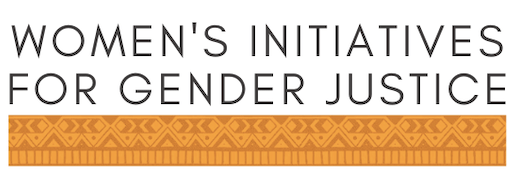
WIGJ remarks at the ICC NGO roundtables on workplace misconduct and the critical challenge of chronic underreporting, from the perspective of complainants
On 23 November 2020, WIGJ consultant Danya Chaikel made the following remarks during the online ICC NGO roundtables to ICC officials from all organs, and NGOs from the Coalition for the ICC:
I would like to say a few words about workplace misconduct including sexual harassment, specifically from the perspective of complainants. We appreciate the opportunity to speak about a topic which can be uncomfortable to discuss, because it impacts many of us directly. In that regard, after reading the recent IER report as well as the IOM’s annual report (which includes investigations of misconduct against ICC staff members) we want to take a moment to recognise the ICC staff members who spoke with the IER experts as well as those who filed formal complaints with the IOM. Coming forward with these experiences can be extremely challenging, but it is the first and necessary step to addressing the problem.
For the past year I have been volunteering with ATLAS – a network of 8,000 women working in public international law. We are raising awareness about the widespread nature of workplace misconduct at all international justice institutions, including the Court, and ways to address it together.
A key theme that has arisen is chronic under-reporting (from survey after survey), and this is indeed one of the reasons the issue has been largely hidden from public discourse. For example, in the 2017 ICC Staff Union survey of 128 staff members regarding harassment, bullying, abuse of power, and discrimination, that only 18.7% of those who said they were victims of these behaviours reported the misconduct, and their reasons included: lack of faith that measures would be taken, fear of retaliation, lack of support from peers or supervisors, and because of the lengthy process. The IBA’s 2018 ground-breaking survey of bullying and harassment of almost 7,000 lawyers, similarly revealed in the Us Too? Bullying and Sexual Harassment in the Legal Profession Report that 57% of bullying incidents and 75% of sexual harassment incidents went unreported.
With so few people reporting, it’s almost impossible to understand the extent of the problem, and equally difficult to address it or hold offenders accountable. To that end we are focussing our advocacy now on the numerous reasons why people don’t report misconduct at international justice institutions.
What has really struck me over the past year in my many conversations with professionals in our field, including the ICC, is that many people do not have confidence in the current internal policies and structures. The experts have similarly noted in the IER report, “the inadequacy of the existing mechanisms in the Court to deal with complaints of bullying and harassment.”
For me, hearing directly from professionals on exactly why they didn’t report misconduct has been enlightening. Thismight be something the ICC could consider doing internally, to better understand what the reporting roadblocks are for staff and personnel. That could involve a confidential court-wide survey of staff and personnel, on the specific reasons why they don’t feel comfortable reporting, as well as a chance for them to offer solutions. This could then inform the development of concrete and tailor-made solutions for the Court. WIGJ proposes that this would be an important next step, because even if the Court implements a zero-tolerance policy, develops further training, and improves its reporting channels, at the end of the day if staff don’t feel comfortable using these tools then they’re not serving their purpose.
As civil society, we welcome opportunities to consult and assist the Court with next steps in addressing workplace misconduct, to promote a safe and supportive working environment for everyone.
An ATLAS Twitter campaign will be launched in January 2021, called #WhyIDidntReport, to raise awareness about the causes of chronic underreporting of workplace misconduct, including sexual harassment.
